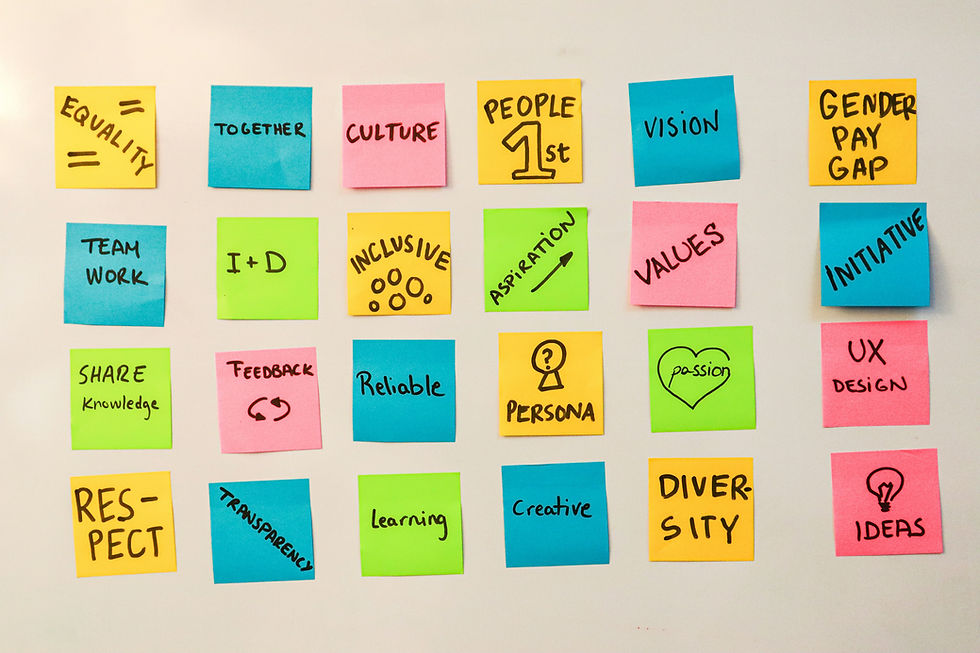Well, this is awkward...
- helenjbutler
- May 21, 2018
- 3 min read

Photo by Roi Dimor on Unsplash
When I started my coaching training, the hardest thing I found initially was to learn to just shut up. I’d always found silences unbearably uncomfortable and would instinctively try and fill them, believing I was doing this because I was a good communicator.
I soon learned that asking a question is not always enough. You must give people the time and focused attention they need if you want to make real breakthroughs. And sometimes that means a really long silence.
I recently read an article in the Harvard Business Review* that gives compelling evidence for managers and leaders to ask questions and really listen to the answers before giving constructive feedback. Growth happens when people make discoveries about themselves, and want to change, not when they’re told to change by a manager. We all know how that makes you feel.
High quality listening is defined as ‘attentive, empathetic and non-judgemental’ in the article, but we don’t always listen this way because we have our own agendas we must get through, and we just don’t have time to take detours. Which of course is understandable, but also quite frankly ridiculous when you take into account the long-term benefits for everyone of asking focused questions and actually listening to the answers:
“our findings suggest that listening seems to make an employee more relaxed, more self-aware of his or her strengths and weaknesses, and more willing to reflect in a non-defensive manner. This can make employees more likely to cooperate (versus compete) with other colleagues, as they become more interested in sharing their attitudes, but not necessarily in trying to persuade others to adopt them, and more open to considering other points of view.”*
The other big advantage of asking more questions and listening properly to the answers of course is that you learn more about the people you work with. You discover that there are always reasons for performance levels and behaviour, and just understanding that is a game changer in any work environment.
So, how can you become a better listener? You probably know this already, but we all need a reminder occasionally:
First up, ditch the phone. Nobody’s going to be 100% in the room with a phone buzzing in front of them. Give all of your attention and you’ll notice the difference straight away.
Don’t interrupt or attempt to fill all silences. And don’t give your advice or opinions (however brilliant you think they might be). Your job at this point is simply to listen, so try and keep your mind chatter at bay. Nobody is going to open up and share honestly if they feel they’re being judged or not really listened to.
Ask open questions. Closed questions close down conversations as the answers are often simply yes or no followed by a defensive explanation. They rob the other person of their status as you take on the role of expert (e.g. have you tried…?)
Listening is a skill and a muscle that you have to put the time and the effort into developing. But the really good news is that you can practise it everywhere with everyone and you’ll soon reap the benefits at work and at home.
If you’d like to develop the power of listening in your workplace, talk to me about my listening and coaching skills workshops. And of course coaching is based on the premise that growth happens when people make discoveries about themselves, and want to change. So if you’re not already developing yourself and your people with a coach, drop me a line, I’d love to hear from you.
*To read the full article (which I highly recommend), please visit https://hbr.org/2018/05/the-power-of-listening-in-helping-people-change




Comments